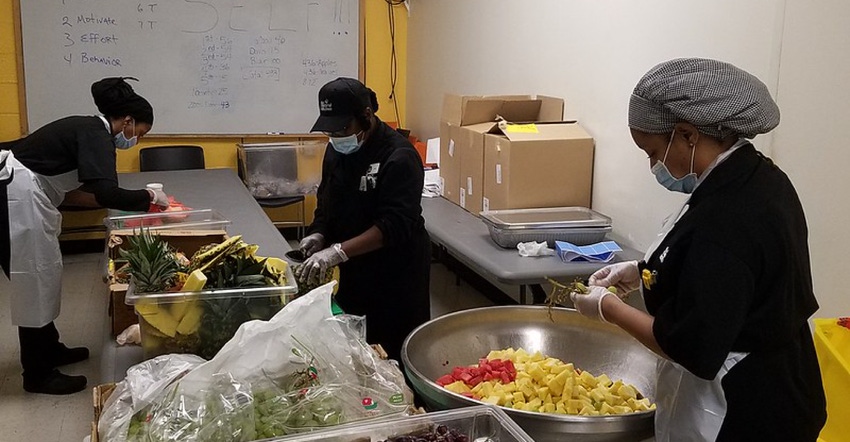
ReFED’s day-to-day focus has always been to accelerate actions to prevent food waste, while seeing that good food gets to those who may otherwise go hungry. Little did the organization know, until a few months ago, that COVID-19 would hit, and that the food insecure population would spike from 40 million to an estimated 55 million people. But the nonprofit, with its network and expertise, was positioned to step in fast to help existing food rescues scale up to address this new public health and environmental crisis.
Its response is the COVID-19 Food Waste Solutions fund, which has raised $3.5 million, allocated to 35 for-profit and nonprofit organizations. Harvest Against Hunger and DC Central Kitchen are among organizations who have tapped into this grant money. Waste360 spoke to both of them and to ReFED.
The ReFED COVID-19 Food Waste Solutions fund is a one-stop, rapid response vehicle for donors who want to help. They pass through ReFED, who vets operations that are on the front line dealing with food-related problems brought on by the pandemic.
“We looked to award grants to midsized organizations with potential to scale quickly and that were recovering healthy, fresh food— especially from farms where we are seeing a lot of food loss and waste as restaurant and food service channels had almost completely shut down,” says Alexandria Coari, Capital and Innovation director at ReFED.
Collectively, organizations from across the U.S. expect to recover more than 50 million pounds of food leveraging funding from ReFED and others (equivalent to 41.5 million meals) and deliver it to some of the most hard-hit communities.
This is a rapidly changing world, and since the coronavirus first forced food business closures, farms have adjusted to try and mitigate surplus, but new closures and opening delays continue to drive uncertainty and waste. So, growers still struggle, as do food rescue organizations trying to address a huge hunger problem.
Seattle, Wash.-based Harvest Against Hunger (HAH) connects farmers, truckers, volunteers, and food banks in order to get fresh produce to food insecure people. In response to coronavirus, HAH is scaling two initiatives: its Farm to Food Pantry and Farmers Share initiative. It expects to rescue and deliver over 850,000 pounds of fresh food through these and other efforts over the next few months.
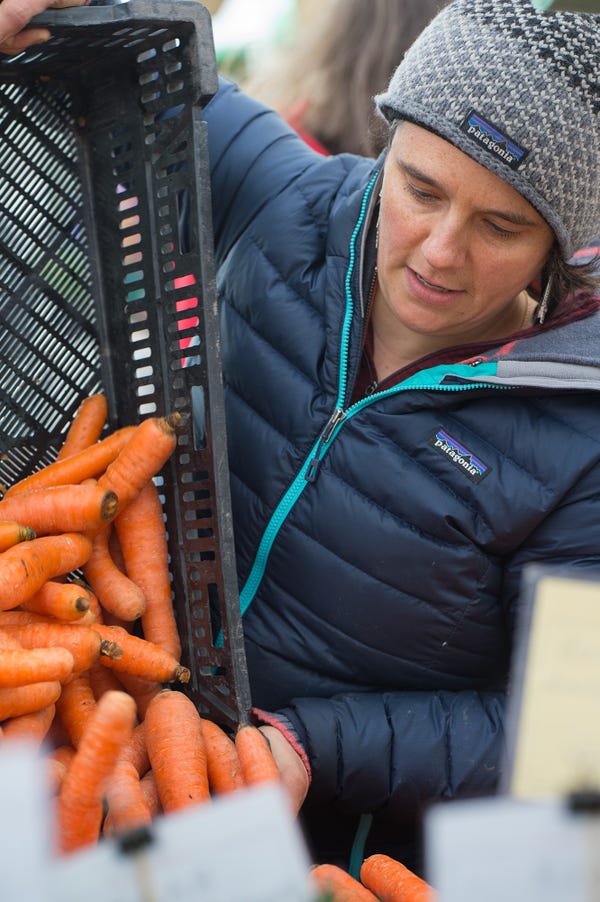
“In addition to these two initiatives we get truckload-sized donations of produce from where it is produced to food banks. We arrange for donated trucking too. We have expanded our trucking partners through COVID-19, and it’s been heartening to see the number of truck companies that want to help,” says David Bobanick, executive director of Harvest Against Hunger.
Its deliveries have tripled through the pandemic, all of food that would otherwise be wasted, he says. And its nearly doubled contracts with growers for the Farm to Food Pantry and Farmers Share initiatives.
HAH has especially seen increases in surplus potatoes and onions as restaurants and other businesses shut down.
“Growers were sitting on mountains of potatoes, onions and other produce that decompose especially fast, so we started working with them to divert this food into hunger relief systems,” says Bobanick. He did it by contacting commissions of specific crops coming out of the ground with few to no homes; the commissions pointed him to farmers with excess to donate.
Speaking of the Farm to Food Pantry initiative, he says, “There are thousands of small- and medium-scale growers around Washington, and we connect them directly with local food banks. We get a pot of money and pass it through to them and work with them on developing contracts.”
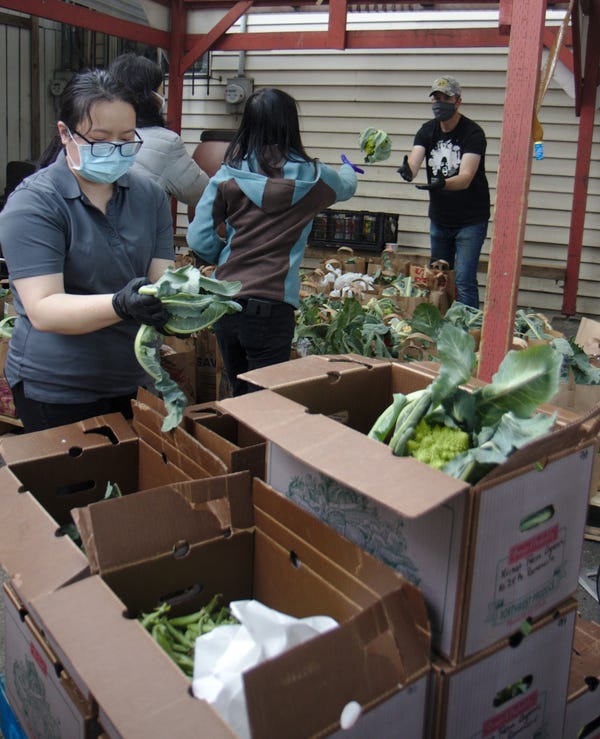
HAH has seen farmers not able to sell to farmers markets or restaurants, but this pandemic has presented a unique opportunity to determine how it can further support growers and get that healthy food into the food relief system.
Bobanick hasn’t had a chance to think about what his operations will look like after the coronavirus.
“We’ve been in triage mode as more people are in need, and we have changed our model because of social distancing, which has been time consuming.”
But when he gets a chance, he says, “We will focus on enhancing and expanding community food systems where we are more closely tying local hunger relief programs with farmers.”
DC Central Kitchen is procuring local vegetables and paying farmers their costs, so that produce is not left in fields. From the ReFED grant period of June through August, it expects to recover at least 500,000 pounds of produce for its emergency food and meal distribution program for food insecure people in the Washington, D.C. area.
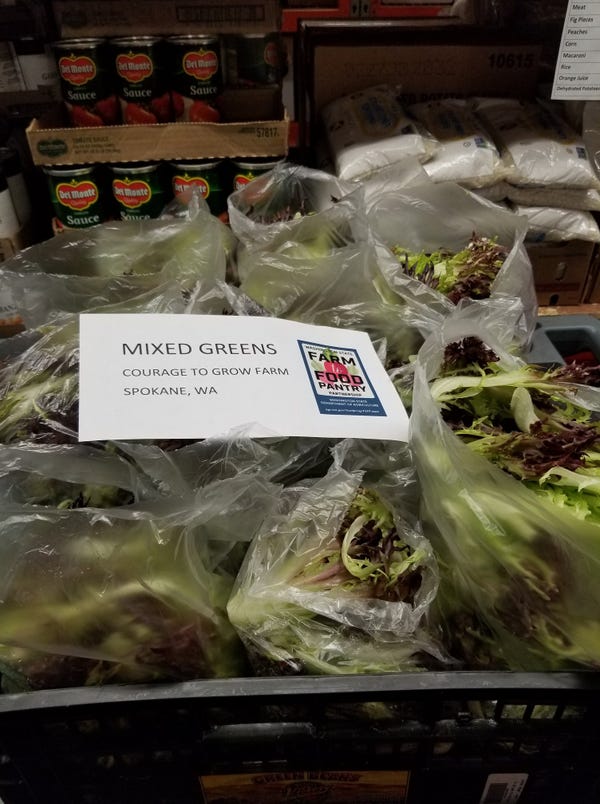
It accomplishes its work leveraging a community kitchen model, which is centered around job training of people with barriers to employment and creating jobs for them through the nonprofit’s food access programs.
DC Central Kitchen normally prepares and delivers 10,000 meals a day. Then in mid-March, when D.C. schools closed, the operation went from serving 16 schools to five—but it had new work. It opened emergency mobile feeding sites, setting up stations to provide meals to youth who could not get to a school, distributing about 7,000 meals a week.
“Around the same time, homeless shelters that normally close in the day began staying open to reduce peoples’ exposure to coronavirus. So, we ramped up meals we provided to shelters.
Then we saw dozens and dozens of affordable housing communities and others with incredible demand for food, and we stepped up to purchase from local farmers,” saysAlexander Justice Moore, chief Development officer DC Central Kitchen.
In the first week of its emergency response, DC Central Kitchen delivered over 32,000 meals to 40 locations. Then it ramped up more. It served more than 87,000 meals at 80 locations in the week ending June 14 alone.
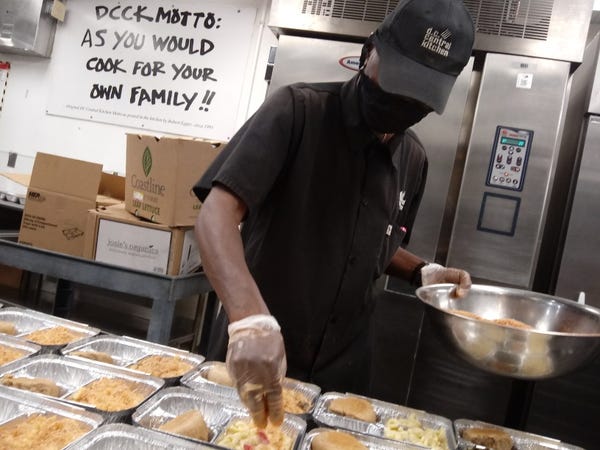
“We have a known distribution fleet and a great network of farmers. And a defining attribute for us is our staff. They have incredible culinary skills but are also passionate about feeding people because many of them have experienced barriers themselves,” says Moore.
He projects there will be need for a long emergency response effort.
“Rehiring and economic recovery will take a long time, so there will be significant food needs. On top of that, this crisis revealed existing underlying gaps to food access. I think it will force a long-term right sizing of food access programs in our communities. Smart solutions for food recovery and local sourcing from farmers will be essential to that effort,” he says.
ReFED plans to grow support for this emergency funding.
It has assembled a directory that includes more than 140 organizations that collectively reported needing more than $70 million over a 90-day period to either launch a new product or service or to ramp up existing operations in response to COVID-19.
About the Author(s)
You May Also Like




